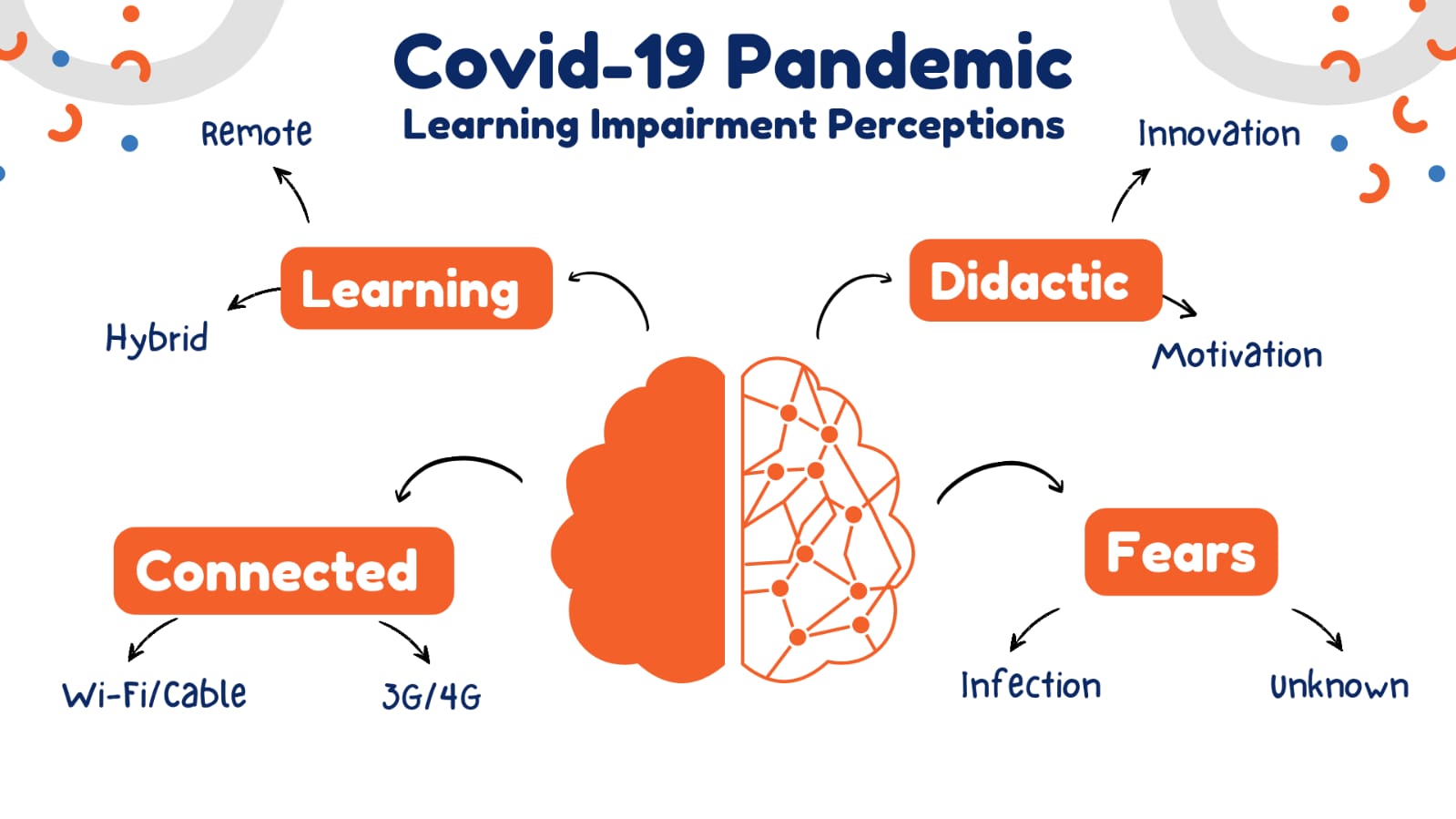Factors associated with the learning impairment perception' by students from Brazilian public universities during the Covid-19 pandemic
Keywords:
Covid-19, remote teaching, learning impairment, logistic regressionAbstract
The Covid-19 pandemic hit, in march 2020, the whole society, with restrictions on conviviality and the need for adaptations in all areas. Specifically in education, institutions temporarily interrupted their activities and got mobilized to continue their classes remotely, supported by technological ways that allow virtual meetings in real time. Given the uniqueness of the situation, not everyone in the academic area was prepared to replace face-to-face classrooms with virtual learning environments. In this context, this work sought to look into the impacts of remote teaching in the lives of students at brazilian public universities during the Covid-19 pandemic. A query was carried out with the students, through an electronic form, questioning, among other things, the feeling of loss in learning during the duration of remote teaching. The responses to this query composed a database analyzed using the statistical methodology of Binary Logistic Regression. Thus, this work aimed to adjust a statistical model to identify possible factors associated with the feeling of loss in the learning process, on the part of students from public universities, in relation to remote teaching. The results show that five covariables, selected through the stepwise process, had greater influence on the response variable. The highlighted covariables were: number of synchronous classes, student’s ability to concentrate, remote interaction with the teacher, remote assistance from the teacher and age group. This result reveals the role of the teacher in the learning process.
References
BRASIL. Ministério da Educação. Portaria nº 343, de 17 de março de 2020. Dispõe sobre a substituição das aulas presenciais por aulas em meios digitais enquanto durar a situação de pandemia do Novo Coronavírus – COVID-19. Diário Oficial da União, Brasília, 18 fev. 2020.
CASTIONI, R. et al. Universidades federais na pandemia da Covid-19: acesso discente à internet e ensino remoto emergencial. Ensaios: Avaliação e Políticas Pública em Educação, Rio de Janeiro, v. 29, n. 111, p. 399-419, 2021. DOI: https://doi.org/10.1590/S0104-40362021002903108. Disponível em: https://www.scielo.br/j/ensaio/a/53yPKgh7jK4sT8FGsYGn7cg/?lang=pt.
CORDEIRO, G.M.; LIMA NETO, E.A. Modelos Paramétricos. Recife: Universidade Federal Rural de Pernambuco, Departamento de Estatística e Informática. 2006. Disponível em: https://www.ufjf.br/clecio_ferreira/files/2013/05/Livro-Gauss-e-Eufrasio.pdf.
FÁVERO, L. P. L., et al (2009). Análise de dados: modelagem multivariada para tomada de decisões. Campos, 1a ed., 2009.
OPAS – Organização Pan-Americana da Saúde. OMS - Organização Mundial da Saúde. Folha informativa sobre COVID-19. Histórico da pandemia de COVID-19. Brasil: OMS, 2020. Disponível em: https://www.paho.org/pt/covid19/historico-da-pandemia-covid-19.
R CORE TEAM. R: A language and environment for statistical computing. R Foundation for Statistical Computing, Vienna, Austria. 2021. Disponível em: https://www.R-project.org/.
SALLES, J. C. Palestra proferida no Webinários ABC #11. Desafios da educação superior em tempos de pandemia. (Rio de Janeiro), 2020. Disponível em: https://www.youtube.com/watch?v=cEA-eAxt1MU&list=PLOMY7wSRDryYzc-NgiR4zPPrW4yQi7dp3&index=11&t=19s.
SILVEIRA, S. R., et al. O Papel dos licenciados em computação no apoio ao ensino remoto em tempos de isolamento social devido à pandemia por COVID-19. In: Série Educar, Prática Docente (org). Belo Horizonte: Poisson. 2020. DOI: 10.36229/978-65-86127-71-3.CAP.04. Disponível em: https://poisson.com.br/2018/produto/serie-educar-volume-40-pratica-docente/.

Downloads
Published
How to Cite
Issue
Section
License
Proposta de Política para Periódicos de Acesso Livre
Autores que publicam nesta revista concordam com os seguintes termos:
- Autores mantém os direitos autorais e concedem à revista o direito de primeira publicação, com o trabalho simultaneamente licenciado sob a Licença Creative Commons Attribution que permite o compartilhamento do trabalho com reconhecimento da autoria e publicação inicial nesta revista.
- Autores têm autorização para assumir contratos adicionais separadamente, para distribuição não-exclusiva da versão do trabalho publicada nesta revista (ex.: publicar em repositório institucional ou como capítulo de livro), com reconhecimento de autoria e publicação inicial nesta revista.
- Autores têm permissão e são estimulados a publicar e distribuir seu trabalho online (ex.: em repositórios institucionais ou na sua página pessoal) a qualquer ponto antes ou durante o processo editorial, já que isso pode gerar alterações produtivas, bem como aumentar o impacto e a citação do trabalho publicado (Veja O Efeito do Acesso Livre).
